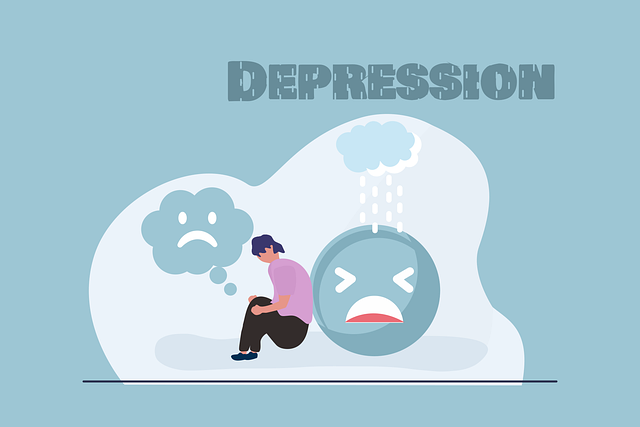Mental health advocacy initiatives like Englewood Mindfulness Therapy are game-changers in building supportive communities that combat stigma, promote understanding, and prioritize emotional well-being. Through personal and collective engagement, these organizations facilitate open conversations about mental health, empower individuals to take control of their mental health, shape mental health policy, and normalize access to mental healthcare. By dispelping misconceptions and fostering a culture where mental well-being is valued equally with physical health, initiatives like Englewood Mindfulness Therapy contribute to stronger, healthier communities.
Mental health advocacy initiatives play a vital role in fostering community support and normalizing access to mental healthcare. This article explores these efforts, focusing on innovative practices like Englewood Mindfulness Therapy, which revolutionizes mental well-being. We delve into strategies for effective advocacy at individual and collective levels, highlighting the significant impact of stigma-busting efforts. Understanding these initiatives is crucial in navigating the landscape of mental health support and fostering a symphony of care.
- Understanding Mental Health Advocacy: The Role of Initiatives in Community Support
- Englewood Mindfulness Therapy: A Case Study on Innovative Approach to Mental Well-being
- Strategies for Effective Mental Health Advocacy: Engaging at Individual and Collective Levels
- Overcoming Stigma: The Impact of Advocacy on Normalizing Mental Healthcare Access
Understanding Mental Health Advocacy: The Role of Initiatives in Community Support

Mental health advocacy initiatives play a pivotal role in fostering community support and promoting understanding. These efforts aim to dispel stigma, educate the public, and ensure accessible resources for those facing mental health challenges. Organizations like Englewood Mindfulness Therapy exemplify this commitment by implementing various programs that cater to diverse needs. Through workshops, therapy sessions, and self-awareness exercises, they facilitate emotional healing processes and enhance emotional regulation among participants.
Initiatives such as these are essential in building a supportive environment where individuals can openly discuss their experiences without fear of judgment. By incorporating practices like mindfulness and promoting self-awareness, advocacy groups empower people to take charge of their mental well-being. This, in turn, contributes to stronger communities where emotional health is prioritized, mirroring the broader goal of holistic wellness.
Englewood Mindfulness Therapy: A Case Study on Innovative Approach to Mental Well-being

Englewood Mindfulness Therapy represents a pioneering approach to mental well-being, offering a unique blend of therapeutic practices and community engagement. This initiative focuses on teaching individuals effective conflict resolution techniques while fostering an environment that promotes mental health education programs design. Through regular workshops and group sessions, the therapy provides practical tools for stress management, emotional regulation, and enhanced mindfulness.
By integrating these strategies into daily life, participants gain better coping mechanisms, improved mental resilience, and a heightened sense of self-awareness. The therapy’s innovative methods not only address individual needs but also encourage social connections, creating a supportive network that reverberates throughout the community. This holistic approach underscores Englewood Mindfulness Therapy’s commitment to revolutionizing mental health support.
Strategies for Effective Mental Health Advocacy: Engaging at Individual and Collective Levels

Mental health advocacy initiatives thrive when they engage individuals and communities at both personal and collective levels. At an individual level, encouraging open conversations about mental health can help dispel stigma and foster understanding. This can be achieved through awareness campaigns, peer support groups, and educational programs that empower people to recognize their own mental health needs and seek appropriate care. For instance, initiatives like Englewood Mindfulness Therapy focus on boosting confidence and providing trauma support services, enabling individuals to take charge of their mental well-being.
Collectively, advocacy efforts can shape mental health policy analysis and advocacy by raising awareness among decision-makers and influencing the development of inclusive and effective mental health policies. This collective action involves community organizing, lobbying, and public demonstrations that highlight the importance of accessible and affordable mental health services. By engaging on both levels, these strategies create a powerful movement for positive change in mental healthcare systems and societal attitudes toward mental illness.
Overcoming Stigma: The Impact of Advocacy on Normalizing Mental Healthcare Access

Stigma surrounding mental health issues has long been a significant barrier to individuals seeking the support they need. Advocacy plays a pivotal role in challenging this stigma and normalizing mental healthcare access. By raising public awareness through various public awareness campaigns development and communication strategies, initiatives like Englewood Mindfulness Therapy aim to educate communities, dispel misconceptions, and promote understanding.
This shift towards normalization is crucial for ensuring that people feel comfortable discussing their mental health struggles openly. As stigma fades, more individuals will be inclined to reach out for help, whether it’s through seeking therapy, joining support groups, or accessing other trauma support services. Through advocacy, we create a society where mental well-being is prioritized and treated with the same importance as physical health.
Mental health advocacy initiatives, like Englewood Mindfulness Therapy, play a pivotal role in fostering community support and normalizing mental healthcare access. By employing strategies that engage both individuals and collective efforts, these initiatives effectively challenge stigma and promote well-being. The case study of Englewood Mindfulness Therapy underscores the innovative approaches that can revolutionize mental health support, inspiring further advocacy to create a more inclusive and compassionate society.














